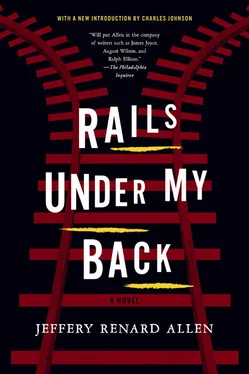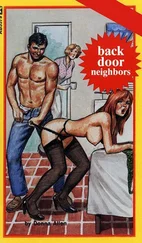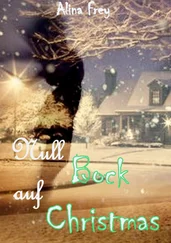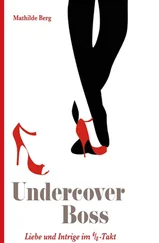That’s all you can do.
Where’s Lucifer? Why didn’t you bring Lucifer? I ain’t seen him in so long. I missed him at the funeral.
Lucifer, sound and name, entered Sheila and flowed like an unknown substance through her body. You didn’t miss him. He wasn’t at the funeral. He couldn’t make it. She thought about telling all, all to tell, all she knew. He had to work. Couldn take off.
I see. Working hard.
Yes. He don’t know how to stop. Ditchdigger mentality. His co-workers always call the house. Slow down. Tell him to slow down. He makin us look bad.
Montel laughed. (The blood and warmth of her laughter.) Sargent the same way.
Sheila stirred in her seat, surprised at the comparison, Lucifer and Sargent. Sargent worked a good job, a well-paid superintendent for the Board of Education. She had always believed that if Lucifer found a good job he might slow down.
Some men are just like that.
I guess so.
An easy silence in the room.
Please wait for Mamma to come back. She sure wants to see you. Before she left this morning she was telling me how much she wants to see you. You know how much she likes you. I don’t have to tell you that.
Yes. Miss Emma was the bouquet of the house, the growing force that kept it alive. (Miss Emma nursed a piece of money that her husband, a tavern owner, had left her.) You sat in the room with Miss Emma and felt force radiating from her, heat. She talked sparingly about the past but feverishly of the present, never advising, always asking about you, discovering, disclosing. Her look silently said that she knew more about your life than you knew yourself. Silent circumstances. I want to see her too. But we haven’t finished packing.
That’s too bad.
I wish I could.
Yes, Montel said. She’ll be sorry. Hurt. But she’ll understand.
Sheila smiled a genuine smile. Miss Emma’s house looks good. Always does.
Sargent stays on top of things.
I hate that Miss Emma ain’t here. Tell her that I said her house looks good.
I will. You can always come visit. Nothing has changed. We want to see you. Don’t be a stranger. You have a reason to visit.
Sheila rode the deep currents of Montel’s voice.
And you be sure to send Porsha by here. Maybe she can motivate Gregory. He got the cutest daughter. Did I send you her picture?
No.
I’ll give you one before you leave. Remind me. Don’t let me forget. Her mother ain’t bout much … You tell Porsha to come on by here and see him.
Yes. She needs somebody good in her life.
Good? Good and broke. I can promise you that. All his money go into paying his car note. You see that fancy thing sitting out front there? Montel pointed. But maybe they would be good together. It happens.
Wouldn that be something.
Yes …
Seeing Montel before her, sitting and feeling it all in Miss Emma’s house, Sheila lived the old life again, felt the old feelings, drawn by the new promise, driven, determined, energetic, expectant. She found day work and worked it, while Lula Mae exhausted her New Mexico savings and worked three times as hard to put and keep Sheila in the Catholic high school, her day carrying her from Memphis to Tupelo to Fulton and back to Memphis. After graduation, Montel went off to teachers college and Sheila followed Beulah North to the city. Her first Christmas in the city, she boxed some snow, wrapped it with ribbon and bow — web of excitement — to send Montel. See, the world really does get cold. Snow really does exist. Yes, it tastes like milk. I really am in the city, up North.
I think about it all the time, Sheila said. A ghost of a chance. Invisible possibility. Moving back here.
Believe me, Montel said. Memphis is nothing to move back to. We got the same problems here where you live. And West Memphis is even worse. They call it Lil City. Young people are crazy. Crazy. Changing change.
Montel said what Sheila already knew. Her eyes were open to the world’s frightening changes. Even the blind couldn’t miss them. But saying made the knowledge immediate, acceptable. Helped ease her terminal homesickness. I’m gon buy me a suitcase. Leave this town. A voice she trusted telling her never to return.
Maybe if I had stayed, she said. She sees it all before her now. Shapes only a foot away.
THE POLAROID INSTANT CAMERA hugged his eye. He shot the bare kitchen — no red metal table, no red metal chairs, no white stove, no white refrigerator — the bare bathroom, the bare living room, Lula Mae’s bare bedroom, Mr. Pulliam’s bare bedroom. He shot the front yard, now minus lawn furniture. He shot the pear, plum, and peach trees. He shot the backyard, the thin clothesline — wind filled trouser legs and blouse sleeves, blowed them about, whipped them light and dark — the railroad plank that flattened the backyard grass, and the bald grass-free space where the little house had been docked. He shot the back end of the house. He reloaded the camera. He shot a frontal view of the house. Shooting done, he arranged the fresh photographs like a chessboard. He had what he needed, unyellowing artifacts. He packed camera and artifacts in Mr. Pulliam’s canvas army duffel bag. Green force.
SUITCASE IN HAND, he opened the chain-link fence — he did not close it behind him — and crossed the wooden railroad plank — swollen but firm, the belly of a sumo wrestler; splinters like prodigious hair — that offered safe passage over the grass-covered drainage ditch. He loaded the suitcase into the cab’s open trunk. Then he stood in the red gravel road — sun flowed down his arms, out his fingers, and arrowed through the tips to stab the earth — and took a final memory-absorbing survey. Miss Bee’s house across the road, her backyard once yellow with corn and chickens. Miss Witherspoon’s house on the corner on this side of the road, her backyard — flowers still in the summer wind; he could describe the colors and textures but knew none of the names — no further than a stone’s throw from Lula Mae’s front yard, next to where the pear trees grew. Lula Mae’s house itself. 1707 Monroe. West Memphis. Summer. The South.
Go ask John Brown to carry us to town in that buggy of his, Lula Mae said. (She called any automobile a buggy. )
Yes, ma’m.
John Brown’s old blue pickup truck waited in the red gravel road. Animated by its own rhythm. Humming grunting popping farting mumbling across the Memphis Bridge. John Brown leaning forward, arms bent around the huge steering wheel, the arcs of his tall knees pointing like mountains. The steering wheel moving between his raised knees. Lula Mae immobile beside him. You and Jesus in the open back, your feet hanging over and out the lowered door. Back-wheel boats churned a still black river — time fell off the great waterwheel but the ferry never moved — and steel stools spun smoke and talk before a wood counter in a steaming greasy spoon that served the best hamburger, something called a Hawaiian burger, and real soda from the fountain. And looking through the low-hanging bushes of the tree before the sidewalk, you could see John Brown’s rotting shell of a house. The sagging roofline. The worn porch steps like bad teeth. (One plank had rotted free.) The crooked mouth of porch. Peeling green paint, a shade darker than the uncut grass swamping the yard, as if the house were part of the very land itself, growing up from the earth.
See the monkey? John Brown circled the length of his property, fingering every link of the chain fence, every blade of grass, every rough edge of tree. See the monkey? he said again, pointing up into the treetops. A few hairs on his skull, head and hair like a coconut shell. Gnarled arms like vines. The veins wormlike beneath his dirt-colored skin. You could hear ghosts inside him, warring for control.
Читать дальше












